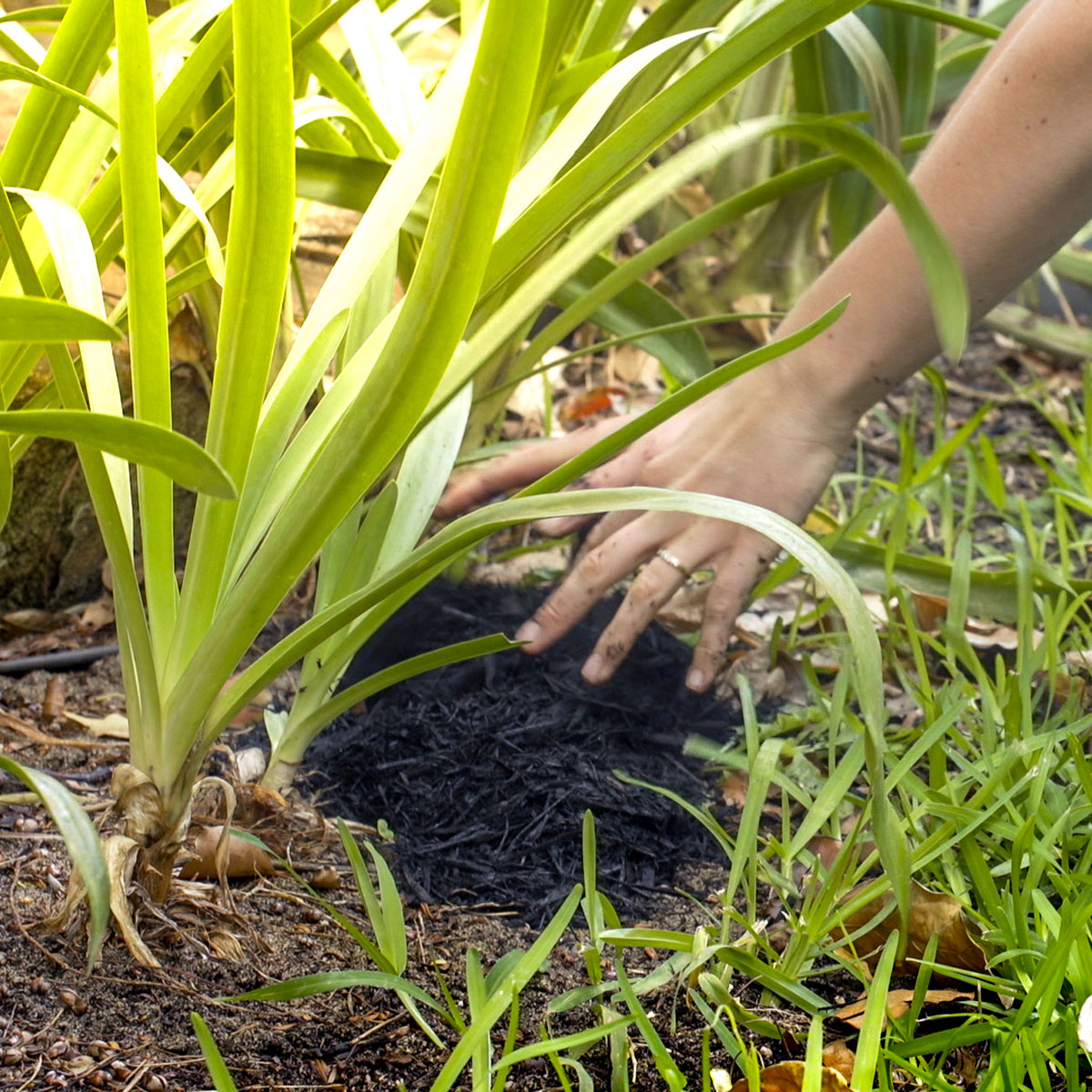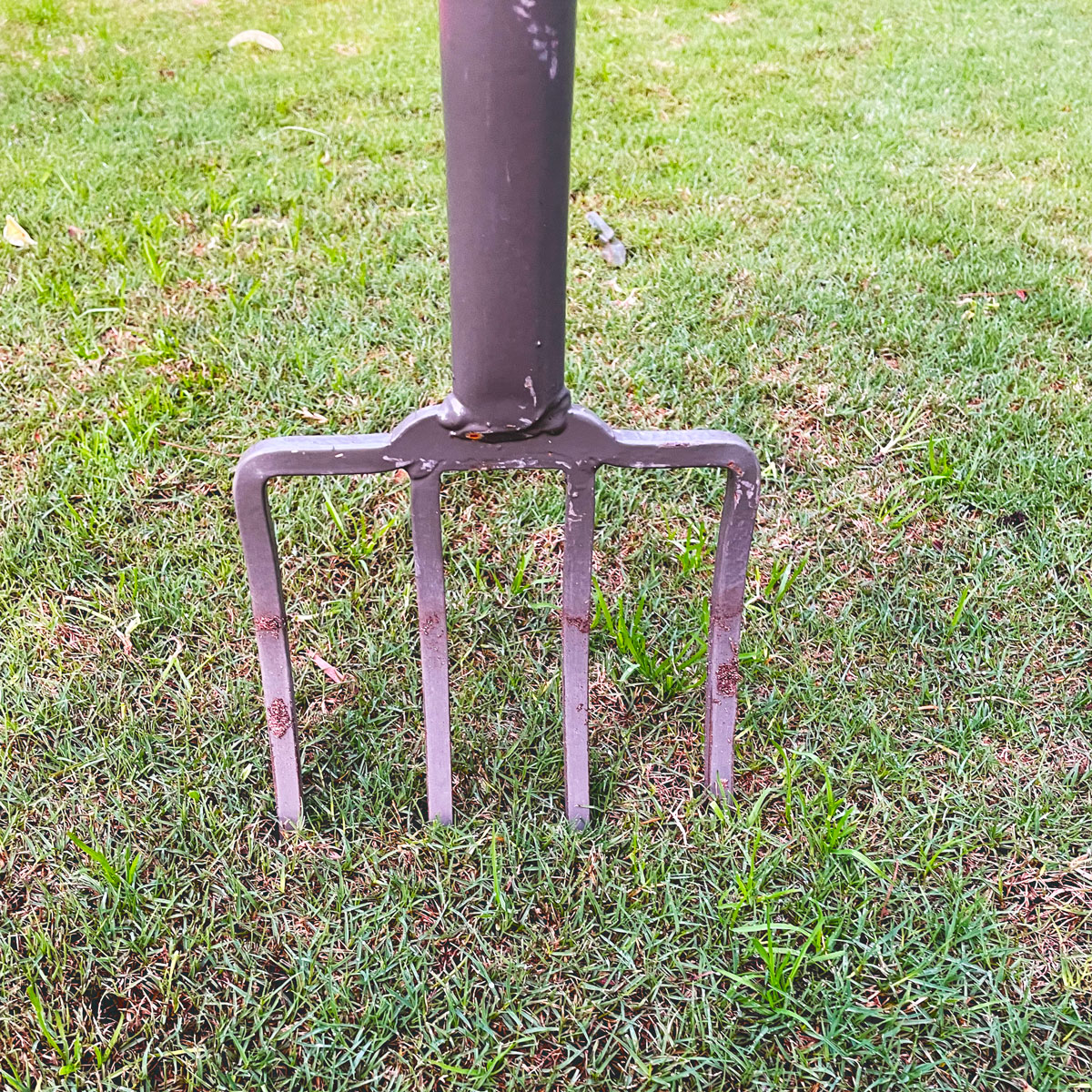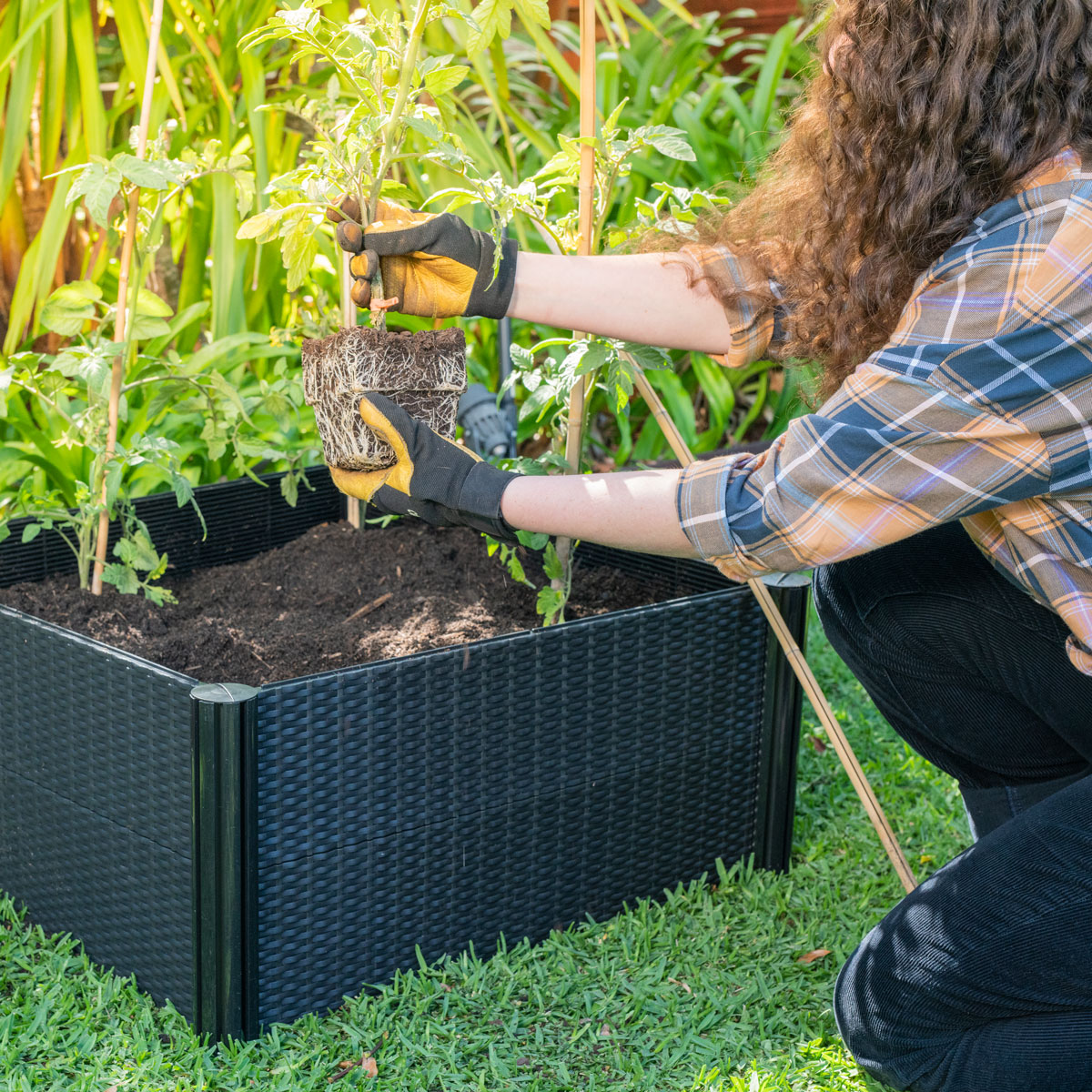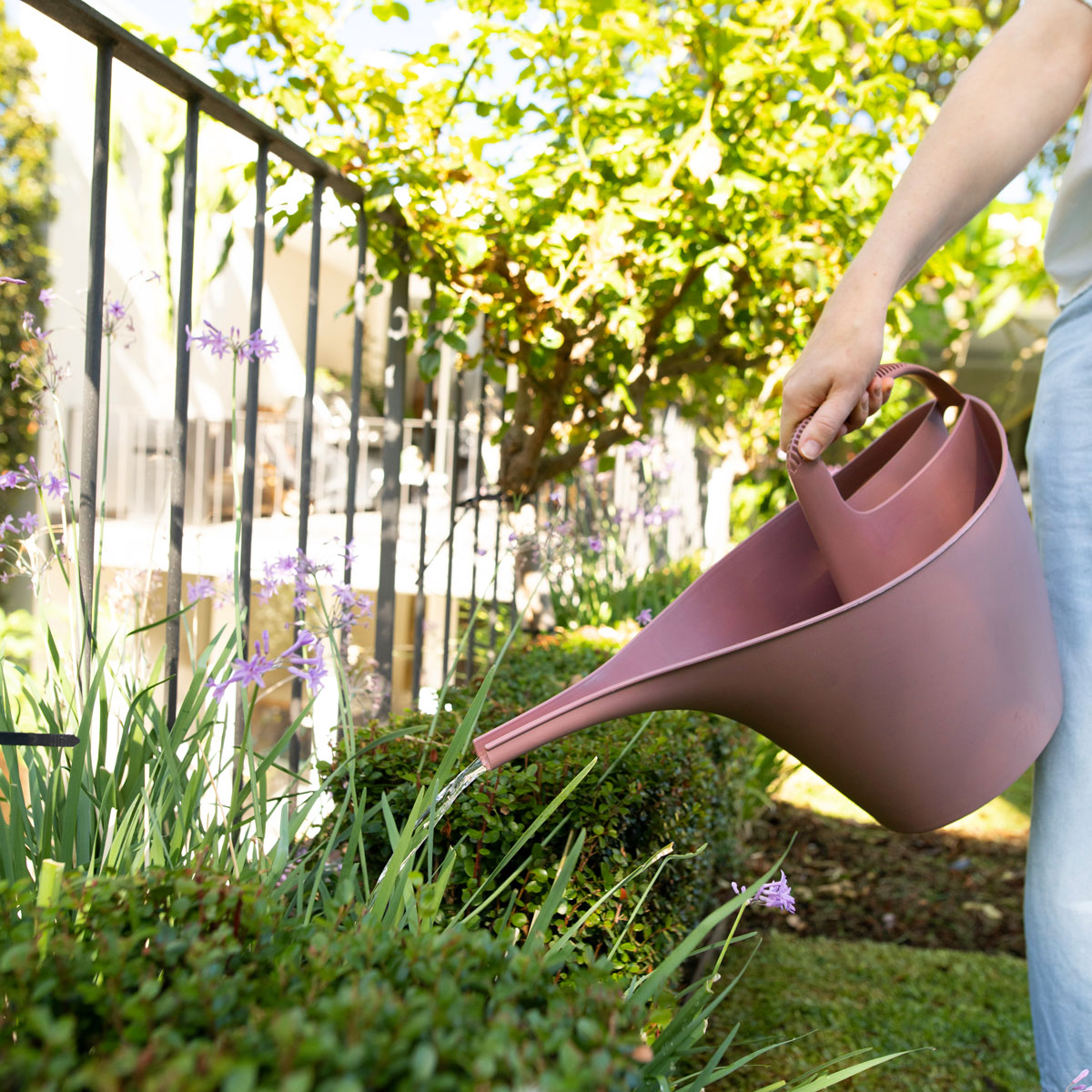Make the most of your garden this Easter break!
Easter break is just around the corner, and what better time to get a head start on some autumn gardening projects? Take advantage of the long weekend and tackle some easy gardening projects, such as mulching, aerating and planting seasonal veggies. With these simple suggestions, you can get your garden ready for winter while giving yourself a head start when spring arrives!
1. MULCH GARDEN BEDS
Mulching in mid-autumn is an essential step in preparing your garden for winter. Think of it as giving your plants a cosy blanket to keep them warm. Not only does it protect your plants from harsh weather conditions but it also helps moderate soil temperature. If using organic mulch, your garden benefits from added nutrients as the mulch breaks down.
First, select your preferred material, such as shredded leaves, grass cuttings, woodchips, or crushed gravel. Apply a layer of mulch around your plants, leaving space around the stems to avoid moisture buildup. Aim for a depth of 5-8 cm to retain moisture without suffocating your plants.


1. MULCH GARDEN BEDS
Mulching in mid-autumn is an essential step in preparing your garden for winter. Think of it as giving your plants a cosy blanket to keep them warm. Not only does it protect your plants from harsh weather conditions but it also helps moderate soil temperature. If using organic mulch, your garden benefits from added nutrients as the mulch breaks down.
First, select your preferred material, such as shredded leaves, grass cuttings, woodchips, or crushed gravel. Apply a layer of mulch around your plants, leaving space around the stems to avoid moisture buildup. Aim for a depth of 5-8 cm to retain moisture without suffocating your plants.
HANDY TIP: opt for a living mulch such as carpet thyme, creeping boobialla, or kidney weed. Living mulches add texture and bring life to your garden. Like other organic mulches, they enrich the soil by adding humus and nutrients. While simultaneously attracting beneficial insects such as bees to your garden, supporting a healthy ecosystem!
2. AERATE YOUR LAWN
Early autumn is the perfect time to give your lawn some extra attention, and one of the most important tasks is aerating it. Aeration is important to combat soil compaction from summer activities. This involves removing small plugs of soil from your lawn, improving water and nutrient absorption and allowing for better air circulation. Resulting in stronger roots and an overall healthier lawn.
To aerate your lawn, you can rent an aerator from a local garden centre or use a pitchfork and punch holes into the soil. Aim for 10cm of space between holes to achieve the appropriate density.
After aerating, keep your lawn moist for the next 2 weeks and apply a high-quality, slow-release fertiliser to help it recover and give it a boost for the season ahead.


2. AERATE YOUR LAWN
Early autumn is the perfect time to give your lawn some extra attention, and one of the most important tasks is aerating it. Aeration is important to combat soil compaction from summer activities. This involves removing small plugs of soil from your lawn, improving water and nutrient absorption and allowing for better air circulation. Resulting in stronger roots and an overall healthier lawn.
To aerate your lawn, you can rent an aerator from a local garden centre or use a pitchfork and punch holes into the soil. Aim for 10cm of space between holes to achieve the appropriate density.
After aerating, keep your lawn moist for the next 2 weeks and apply a high-quality, slow-release fertiliser to help it recover and give it a boost for the season ahead.
3. PLANT AUTUMN FAVOURITES
Autumn is a great time to plant seasonal vegetables in your garden, especially if you’re craving some autumn favourites! Take advantage of the cooler weather for growing a variety of cool-season veggies, such as baby leaf spinach, silverbeet, beetroot, onions, broad beans, kale, cauliflower, or lettuce.
For best results, plant vegetables in a raised bed using a soil mix designed for vegetable gardening. Don’t forget to regularly water and feed your plants with fertiliser to help them grow. All that’s left is to harvest when they’re ready!


3. PLANT AUTUMN FAVOURITES
Autumn is a great time to plant seasonal vegetables in your garden, especially if you’re craving some autumn favourites! Take advantage of the cooler weather for growing a variety of cool-season veggies, such as baby leaf spinach, silverbeet, beetroot, onions, broad beans, kale, cauliflower, or lettuce.
For best results, plant vegetables in a raised bed using a soil mix designed for vegetable gardening. Don’t forget to regularly water and feed your plants with fertiliser to help them grow. All that’s left is to harvest when they’re ready!
4. SIT BACK AND RELAX
Now’s the time to kick back and admire your work. Gardening is thirsty work, so remember to give yourself and your plants plenty of water! Adequate watering will ensure that your plants have the best chance of thriving after these intensive tasks. Do you have any autumn projects planned for the break? Let us know what else you like to do around the garden when things begin cooling down.


4. SIT BACK AND RELAX
Now’s the time to sit back and admire your work. Gardening is thirsty work, so remember to give yourself and your plants plenty of water! Adequate watering will ensure that your plants have the best chance of thriving after these intensive tasks. Do you have any autumn projects planned for the break? Let us know what else you like to do around the garden when things begin cooling down.
Get more practical gifts, straight to your inbox!
If you want to get notified as soon as we publish a blog, sign up to our newsletter! You’ll also receive exclusive deals and be the first to know about any new products.




 No products in the cart.
No products in the cart.